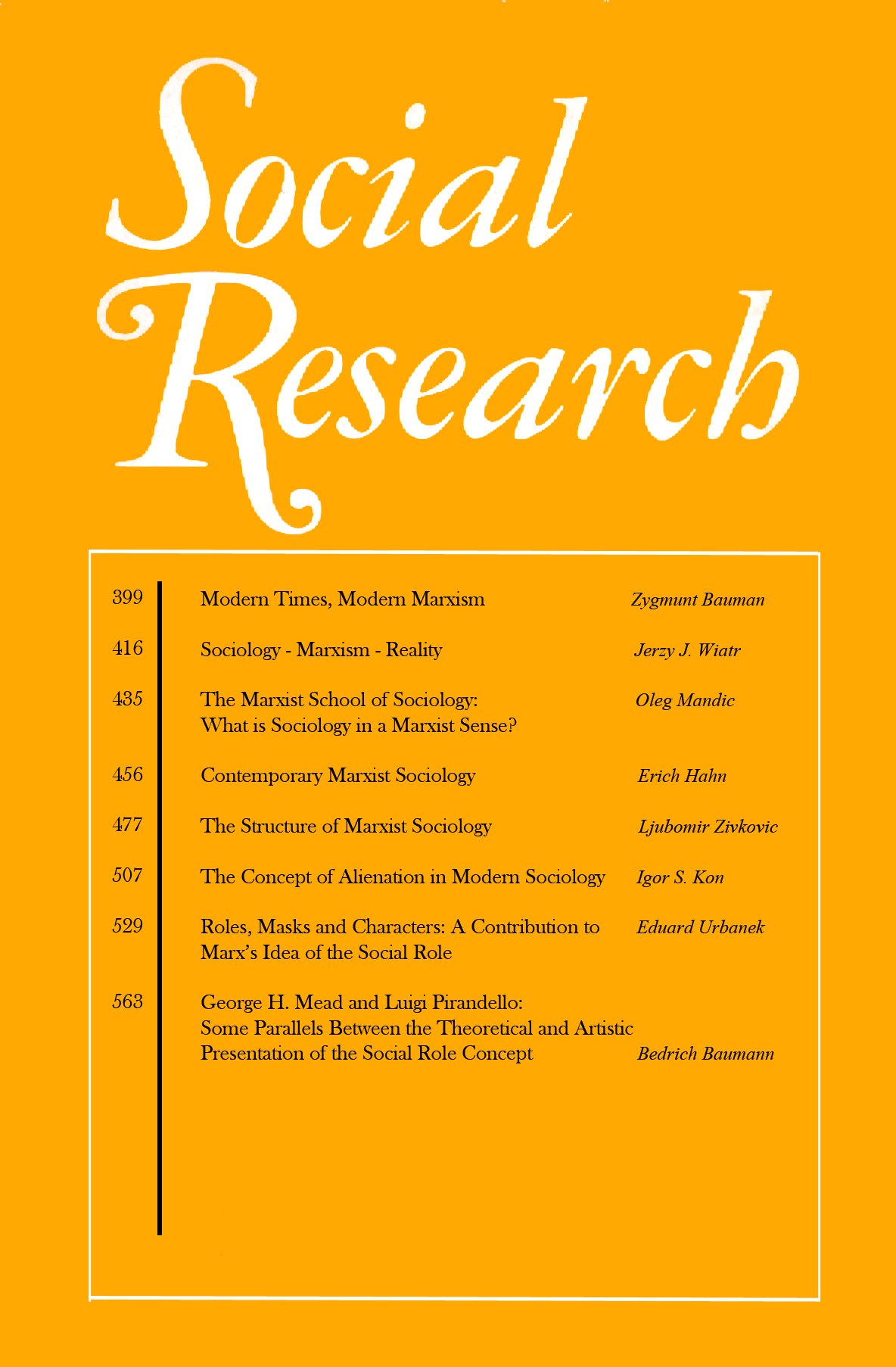The author has chosen to write on Marxism, rather than on Marxist sociology. As a matter of fact, the very attempt to differentiate Marxist methodology and Marxist Weltanschaunung into separate domains within the established academic divisions is hardly a “Marxist” endeavor. If there is something specific and peculiar to the Marxist approach to the study of man, it is its stubborn effort to combine into a unified whole the multifarious and divergent images of man as seen from different points of observation.
The relationship to Marxism to other trends in contemporary sociology can be analyzed on many levels. It is possible to consider systematically the statements which are part of the Marxist system, and which are popularly accepted as being “Marxist,” to see how many were confirmed by the later development of sociological knowledge and became part of the accumulated and generally recognize science.
Before we can differentiate between diverse and divergent opinions concerning more the mode of approach to social reality than the object of the common sociological science, it is necessary to determine what exactly is meant by Sociology as a Science of Man. The author’s opinion is that the main aim of sociology and of all sciences in general, without exception, is a humanistic one: to enable all men to direct rationally their social activity by providing them with knowledge of the natural and social laws which operate in their more immediate and less immediate environment.
The recognition of the specifics of social reality is indeed the most general prerequisite of sociology as a science. This, however, is very formal and abstract likeness behind which the most different opinions and standpoints towards the characteristics of this kind of reality can be masked. It frequently happens that even the possibility of perceiving and the perceptibility of social reality is denied or doubted. The author takes the view that a scientific image, an adequate theoretical projection of a society as a whole, its general relationships and basic features, is not only possible but necessary.
In contemporary social science two basically different conceptions of society, with different categories, laws, and logical structure, have become crystallized. One is so-called bourgeois sociology, which takes the form of a positivistic, empirical social science without a philosophy, and the other is so-called Marxist sociology, which bases its theory of society and history on the philosophical principles of dialectical materialism, and therefore is usually called historical materialism.
The concept of alienation is one of the most common and withal one of the least defined concepts in modern sociology. Some authors shun a clear-cut definition altogether. To understand this concept of varied meaning, we should best trace its evolution, historically in its relation to the history of philosophical thought.
Czechoslovakia, since the year 1956, has passed through many phases in the sphere of art, culture, and social science during which questions, ideas, and problems had been ignored, vetoed, and prohibited or repressed because of the restrictive atmosphere of the so-called cult of personality period were rediscovered and discussed. These reassessments and “rehabilitations” have usually had the outward form of fads.
The object of this article is less an analysis of the relevant connections existing between the works of Mead and Pirandello than a comparative study of the bodies of ideas they both incorporate, integrate, and reflect. It is a fragment of a larger study on social role concepts as expressed by some outstanding modern novelists and playwrights.

